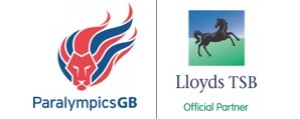OLYMPICS LONDON 2012: Grassroots legacy is where Rio 2016 funding should go
By James Toney, Sportsbeat, London 2012
UK SPORT chairman Sue Campbell has put in an Olympian shift in the past two weeks – there's barely been a venue not attended as she sees first-hand the impressive return on the £300m investment made in British athletes at their home Games.

DECISIONS: UK Sport chairman Sue Campbell needs to make decisions about how minority sports given home places will be funded to Rio 2016
But while they will now take a deserved rest, UK Sport faces some difficult and immediate decisions as they prepare to decide funding levels for the 2016 Games in Rio.
The government have said funding levels will remain the same for Rio - at least until the next spending review in 2014 - but how that pool of cash is divided is far from decided.
UK Sport set a base target of 48 medals from 12 sports, which has already been comfortably achieved, and wanted Team GB to finish fourth on the medal table - they will finish third.
However, when they sit down to evaluate the Games they will look at each sport individually and pay very little attention to the top line figures that so preoccupy the media.
A home Games presented a unique challenge to UK Sport, who invested money in sports like handball, water polo, volleyball and basketball at record levels – even if their world standing did not meet their normal performance criteria.
Great Britain's men's water polo team lost all five of their group games, scoring 24 goals and surrendering 77.
The women's team finished eighth in the eight-team tournament but within touching distance of making the semi-finals, after nearly beaten Russia and Spain in close-fought and exciting encounters.
Over at the Copper Box, or the ‘box that rocks’ as it was dubbed, capacity crowds were falling in love with handball – a fast, frenetic and physical sport that should tick all the boxes for the British sports fan that’s perfect to be taught in school gyms.
But poor British goalkeeper Bobby White had to pick the ball out the back of his net 192 times in five matches, while the narrowest losing margin the team had against France, Sweden, Argentina, Tunisia and Iceland was nine goals.
And the women's team didn't fear much better either.
At Earl's Court the British men's and women's volleyball teams were also doing their best against seemingly insurmountable odds, considering their lowly world ranking.
They played ten times and were beaten in straight sets nine times. Indeed they won just three sets in total, the women beating Algeria 3-2.
British basketball has made tremendous strides in the last seven years but faces an uncertain future. Men's coach Chris Finch, who has masterminded a rise up the rankings, has announced his retirement while many believe Chicago Bulls star Luol Deng has played his last game for the team.
In addition, women's coach Tom Maher is also expected to look for a new challenge.
Great Britain won just one game at the Basketball Arena, the men beating China, although arguably they should have also claimed the scalps of European champions Spain and Australia.
There is no doubt host nation places are important for Games organisers when it comes to shifting tickets, although even the most ardent home team supporter might struggle to get too excited about losing 41-24 to Iceland.
However, you have to feel sorry for sides ranked in the world's top ten who were excluded in Great Britain's favour or Brazil's in four years time.
Unless massive and very unlikely improvements are made it is highly unlikely that any of these team sports – which all booked their place at the Games via a host nation slot – will qualify for Rio.
So what do you UK Sport do? Between them handball, water polo, basketball and volleyball received over £18.5 million for this Olympic cycle.
Some call for ruthless decisions to be made.
After modest success at the 2004 Athens Olympics British cycling was offered a big boost in funding - they decided not to fund a bigger squad of athletes, because their focus was only on those with podium potential, but instead used the money to invest in coaching, sports sciences and technology.
There is no point investing in elite programmes for sports that have very little chance of making the Games in four years time – it is not where the money should be targeted.
These sports should be allowed the opportunity to seize on the legacy of the Games to fund and develop grassroots programmes.
In all likelihood Great Britain's class of 2012 volleyball, handball, water polo and basketball players have had their one and only Olympic moment.
But if we stay the course and invest the same money wisely in coaching, infrastructure and grassroots, it could be we see another team back at the 2024 Games and maybe they might fare a bit better.
Legacy after all is a long-term project. In some cases it can't be judged on performances and podiums and four-year cycles.
© Sportsbeat 2012
![]()











Comments
Post new comment